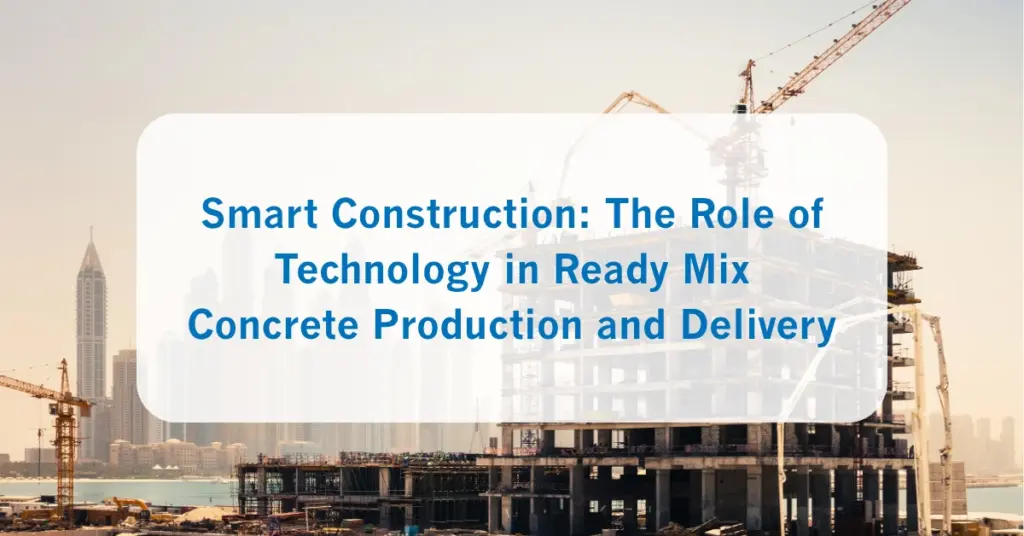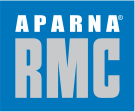Smart Construction: The Role of Technology in Ready Mix Concrete Production and Delivery

October 9, 2025
1. Introduction
Modern construction is being reshaped by technology-driven innovation. No longer is concrete mixing a manual or purely mechanical process — it has become a highly automated, data-backed, and precision-oriented science. Ready Mix Concrete (RMC) production now integrates IoT, GPS tracking, automation, and real-time quality monitoring to ensure every cubic meter meets exacting standards. These advancements not only guarantee superior strength and durability but also enable projects to stay on schedule and within budget.
2. Why Technology in RMC Matters
Relying on outdated methods in RMC production can lead to:
- Quality inconsistencies: Manual monitoring often results in uneven mixes and compromised strength.
- Delivery delays: Without GPS-enabled fleets and scheduling systems, projects face costly downtime.
- High wastage: Lack of automation leads to overuse of raw materials and increased costs.
- Compliance issues: Inaccurate batching may fail to meet structural and regulatory standards.
3. Key Factors to Consider When Choosing a Tech-Enabled RMC Supplier
a. Automated Batching Plants
Modern batching plants with SCADA (Supervisory Control and Data Acquisition) systems deliver mixes with precise water-cement ratios, reducing human error.
b. Real-Time Quality Monitoring
Suppliers using IoT sensors can track slump, temperature, and strength during production and delivery. This ensures quality is maintained right until placement.
c. GPS-Enabled Logistics
Smart fleets with GPS and route optimization minimize delivery delays, ensuring fresh concrete reaches the site on time.
d. Data Transparency
Suppliers who share digital reports of each batch (mix design, time of batching, delivery route) build trust and accountability with contractors.
e. Digital Integration with Projects
Suppliers offering integration with project management tools help developers monitor concrete usage, delivery schedules, and costs in real time.
4. Checklist Questions to Ask Suppliers
- Do you use SCADA-controlled batching systems for accuracy?
- How do you track and ensure quality during transportation?
- Can I get digital reports of each batch delivered?
- Do your transit mixers have GPS-enabled tracking?
- How do you use technology to reduce wastage and costs?
5. How Aparna RMC Sets the Benchmark in Tech-Driven Concrete
Aparna RMC leverages cutting-edge technology to ensure efficiency, consistency, and customer confidence:
- SCADA-Controlled Batching Plants: Deliver mixes with precision and zero manual error.
- IoT-Enabled Quality Checks: Monitor temperature, slump, and strength in real-time.
- GPS-Fitted Fleet of 350+ Mixers: Optimize routes and ensure on-time delivery across project sites.
- Digital Batch Reports: Provide contractors with data-driven transparency for every order.
- Smart Dispatch Systems: Match project demand with plant capacity to minimize delays.
From metro rail networks to skyscrapers and IT parks, Aparna RMC’s technology-driven approach has enabled developers to complete projects with unmatched speed and accuracy.
6. Conclusion
In an industry where time, quality, and cost control are critical, technology has become the backbone of modern RMC production and delivery. Contractors who partner with tech-driven suppliers gain a decisive edge — faster projects, lower risks, and consistent results.
👉 With Aparna RMC, you don’t just get concrete — you get data-backed assurance of strength, durability, and reliability.
7. FAQs
Q1: What technologies are used in modern RMC production?
Automation through SCADA, IoT-enabled sensors, GPS tracking, and digital batch reports are some of the leading technologies.
Q2: How does GPS help in RMC delivery?
GPS ensures timely deliveries by optimizing routes, tracking mixer movements, and reducing waiting times at sites.
Q3: Can I track the quality of concrete delivered to my project?
Yes. With Aparna RMC, real-time monitoring and batch reports provide transparency in every order.
